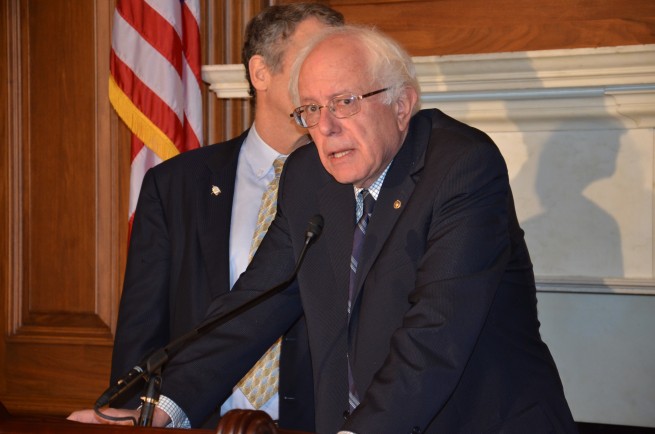Today, New Hampshire voters will park their Subarus at their local polling place and briefly set down their lattes to cast their ballot in 2016’s first presidential primary. Calling Vermont home, Democratic nominee Bernie Sanders will be sure to win a solid majority from his eastern neighbors. Having achieved a very strong virtual tie in Iowa and surely a dominant win in New Hampshire, Sanders will celebrate the apex of his campaign this week.
Already, Sanders has made more of a mark on this campaign than could have been foreseen when he declared his candidacy. Drawing unprecedented crowds, he has made “democratic socialism” a household term and made the Democratic primaries much more of a race than the Hillary Clinton runaway that had been anticipated. Nonetheless, it is tough sailing from South Carolina onward. The wheels of the Bernie wagon may not fall off immediately but will face vicious assault in the next couple of months.
Until recently, the GOP contenders have thrown numerous attacks at President Obama and Clinton, but have not considered Sanders to be a worthy target. Not wanting to lose the label of “progressive,” Clinton has avoided the most potent anti-Bernie rhetoric available. All this will change as the Sanders campaign proves its mettle. His rise will draw a greater level of attention from the other side.
Perhaps if Sanders cruised along, earning a small and steady share of the vote, he would be able to give his Brooklyn-flavored spiel nationwide on his own terms. More than any other candidate, Sanders has controlled the narrative of his campaign because he stands so clearly apart from the others. Now having peaked at the start of the primary season, the target painted on his back becomes a serious threat. Comments such as Rubio’s derisive description of Sanders as “good candidate for President of Sweden” are only the beginning.
Another issue is the unfavorable primary schedule going forward. Success in mostly white and rural Iowa and New Hampshire will not necessarily translate everywhere. In addition to South Carolina on Feb. 27, a number of other southern states will vote on “Super Tuesday” (March 1). Perhaps being a Yankee is a disadvantage against the wife of an Arkansas hero. Despite his decades of civil rights activism, Sanders’ level of support among black voters is unclear.
According to Vox, political scientists believe that a Bernie nomination would cost the Democrats between 2 and 10 percent in the general election. They disregard head-to-head polls that may show Bernie favorably in November against a particular GOP opponent, saying it is far too early for these polls to have any meaning. So when the primary season gets down to brass tacks, there may indeed be strategic voting in which supporters of Sanders vote for Clinton to give the party the best chance.
New Hampshire may not be Sanders’ final triumph, but the next two weeks will prove to be Bernie’s finest hours. Regardless of political stance, his overachieving campaign has been admirable. Even without a nomination, his message has been felt and will influence the future of the Democratic party. Whether you “Feel the Bern” or “Fear the Bern,” February is the hottest “Bern.”
Daniel Galitsky is a senior economics and finance major. He can be reached at dgalitskydbk@gmail.com.



